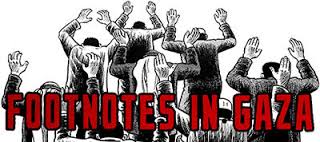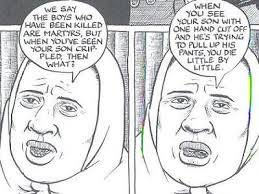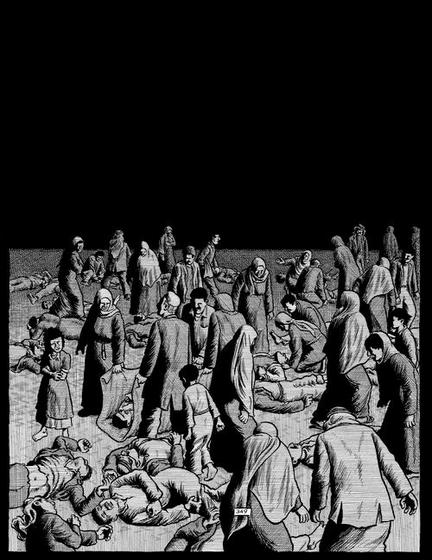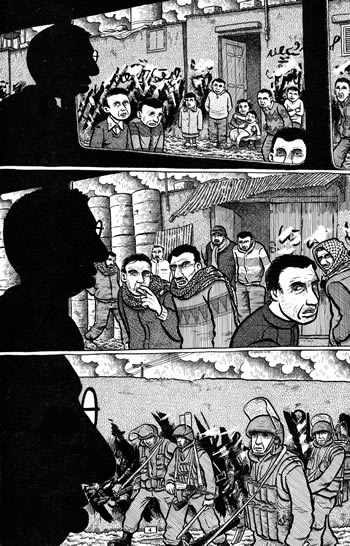No Blue Sky Between Republicans and Democrats on Israel
As we prepare watch the Democrats roll out their plan for America this week, it’s instructive to consider how the issue of Israel and the Palestinians plays out on the domestic policy stage.
In a July 19th New York Daily News opinion piece “The GOP is playing a dangerous game with the Israeli-Palestinian conflict” Rabbi Rick Jacobs, head of the Reform Jewish movement, wades into the controversy as a mainstream American Jewish leader concerned about our country’s support for Israel. He was not happy about what he saw coming out of Cleveland:
“The Republican Party’s platform excludes language for a two-state solution for Israelis and Palestinians, a serious divergence from a quarter century of U.S. foreign policy. This could be a dangerous foreboding of where the Republicans are headed.”
Rabbi Jacobs goes on to warn that abandoning the two state solution “would subject Israel and the Palestinians to an endless cycle of violence.” Turning away from two states, he writes, is “a dangerous turning point,” citing with approval the fact that the Democratic platform is sticking to its story about supporting “two states for two peoples.”
But ironically, the Republicans have actually got it right: their current platform, rather than departing from U.S. policy on Israel, is actually a more accurate reflection of four decades of U.S. support for Israel’s expansionism at the expense of Palestinian rights. Every negotiation brokered by the United States has effectively ignored Palestinian rights with respect to territorial sovereignty, refugee rights, treatment of prisoners, access to natural resources, and freedom of movement. Since the 1970s, when the Likud government under Menachem Begin took power, every successive U.S. administration has acted not as a neutral party but as “Israel’s lawyer,” acceding to terms set out by Begin and every successive Israeli government—terms that have all but eliminated the possibility of a Palestinian state in the West Bank and Gaza. The dirty secret is that, despite its language on the international stage, Israel has never been interested in or willing to accept a sovereign, independent Palestinian state on its borders. Israel’s goal in every negotiation, as well as in its actions on the ground, have been aimed at achieving control over, if not outright annexation of, the entire territory from the Mediterranean to the Jordan. Except for one instance (interestingly under the administration of Bush senior), no U.S. administration has ever taken effective steps to stop this program. In fact, we have supported Israel at every turn, diplomatically and with massive financial assistance. The Democrats will continue to chant the “two states” mantra, but it has become a dangerously fruitless process, as Israel’s policies of annexation, settlement and control continue in violation of multilateral agreements and international law.
Rabbi Jacobs wants us to accept more of the same. He claims to support Israel, but the policies he advocates will serve only to guarantee continued conflict and insecurity for the Jewish state. When will Rabbi Jacobs wake up to the reality that only nonviolent direct action will bring the politicians – both in Israel and the U.S. and Europe – around? Why is he so afraid of BDS, a nonviolent effort by Palestinians to secure their rights to live in peace and equality with the Jews of Israel? What word in “Montgomery bus boycott” does Jacobs not understand? Why is he not eager to have the world do for Israel what it did for South Africa two generations ago, rescuing South Africans – white and black – from the evil of Apartheid that was poisoning their country?
Rabbi Jacobs is doing what he accuses the other side of doing, by seeking to delegitimize BDS, casting it as radical and anti-Israel. He links the Republicans to right wing evangelicals: “The extreme right supporters of one state sadly mirror the extreme left supporters of BDS, who are also one state supporters who aim to delegitimize Israel’s right to exist as a Jewish state.” It’s a classic straw man tactic, allowing him to position mainstream Judaism as the moderate left, pursuing — you guessed it — the two state solution.
Rabbi Jacobs uses words implying compassion for the “Palestinian souls” suffering under the current situation, but in pursuing the real object of his piece – stopping BDS — he is denying the Palestinians the right to legal, nonviolent action. And he wants to discourage Americans, including increasing numbers of Jews, as well as Christians across the theological spectrum, from supporting the Palestinians in this effort. In fact, BDS is gaining support on a global basis, which is the reason for the increasingly strident and desperate cries from Rabbi Jacobs and others that it is “anti-Semitic” and has as its object the destruction of Israel as a Jewish state. Jews and Christians alike are coming to the realization that a state that truly expresses Jewish values would not look like the Israel of today. Something has to change, for Palestinians and Jews alike, and BDS is the best tool we have for bringing that change about.
In a bid to outdo the Democrats in the “I love Israel” department, the Republicans have staked out their “pro-Israel” position — a now familiar practice in every Presidential election. We’ll hear more of the same this week in Philadelphia, if the Democrats allow the issue to surface at all (we’re talking kryptonite for Party unity). But the political impact of BDS is gaining steam: the growing global campaign is causing more and more people to question our no-strings-attached support for Israel. That’s why Rabbi Jacobs and others like him are up in arms about it. That’s good news for the BDS movement. At historical moments like this we recall Gandhi’s words:
“First they ignore you, then they mock you, then they fight you – and then you win.
Mark Braverman serves on the Advisory Board of Friends of Sabeel North America and is National Program Director for Kairos USA. He is the author of A Wall in Jerusalem: Hope, Healing, and the Struggle for Justice in Israel and Palestine, Jericho Books, 2013.
Permalink Comments off




